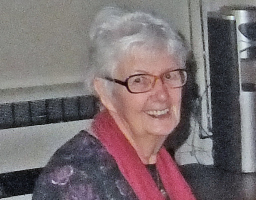
Prof Dean Fennell
We are very proud to publish our latest interview with a leading clinician. Today we are interviewing Prof Dean Fennell one of the world’s leading cancer researchers. Prof Dean Fennell is currently Chair of Thoracic Medical Oncology at the University of Leicester. Top find out more about Prof Fennel and his work please go to his web page – http://www2.le.ac.uk/departments/csmm/people/professor-dean-fennell
In this interview Prof Fennell tells us more about his current research into Mesothelioma. You can read our previous article on the subject here https://patienttalk.org/calling-the-cancer-community-new-study-harnessing-ground-breaking-science-offers-hope-to-mesothelioma-patients/
PATIENTTALK.ORG What is Mesothelioma and how does it differ from other types of lung cancer?
PROF FENNELL Well Mesothelioma is a cancer that is unique and it is unique because it is one that we know is caused by a specific substance. Just in the same way that people would associate tobacco with the majority of lung cancers. Mesothelioma is almost invariably associated with the substance asbestos. This is a mineral which was used for its phenomenal insulating properties dating back as far as the Romans actually but the problem has been that with the use of asbestos in the 20th Century those individuals that have come into contact with it have been exposed to essentially a carcinogen that causes this disease and it take around thirty years to form. I suppose the main thing that defines it in terms of how it behaves compared with lung cancer is that this is not a cancer that flies around the body and spreads rapidly to distant parts of the body. It tends to stay within the chest. It tends to create a straightjacketing effect around the lung and really the symptoms of this disease are related in part to the fact that this is confined to the chest rather than spreading to say the bone or the brain or other parts of the body.
PATIENTTALK.ORG How common is it?
PROF FENNELL I think this is a problem that we are facing with Mesothelioma. We are in the wake of an epidemic. The epidemic is not just a national emergency it’s part of a worldwide problem that we are facing. Particularly in Europe and this because of the timing I think of the exposure. The maximum exposure was seen in the order of around thirty or so years ago and when just now we are able to see a dramatic rise in the incidence. So we see around 200,000 patients a year at the moment. We think the rate is going to increase over the next decade it may extend beyond that but certainly up until the middle of the 21st Century we anticipate that the numbers will be much higher than historically seen, certainly before the seventies.
PATIENTTALK.ORG What is the typical treatment for Mesothelioma and the typical prognosis?
PROF FENNELL Well there is only one, what we can define as NICE approved standard of care for Mesothelioma. About ten years ago a trial was conducted and the result of that trial is today’s standard therapy. This is combination chemotherapy. Patients will receive usually four to six cycles of that chemotherapy and following that chemotherapy that’s really it as far as the HS goes for many centres because there is no standard of care in the second line we are really guessing at what treatments to offer patients and this is really why we need major advances in terms of new drug based treatments for this cancer.
PATIENTTALK.ORG Can you explain what exactly is a clinical trial? What the objectives of this study are and the risks involved?
PROF FENNELL In general a clinical trial is the formalised assessment of a new agent and the assessment is very often conducted particularly when wanting to establish how effective the drug is by randomising the drug compared to either the existing standard of care or if there isn’t one to a placebo which matches the experimental medication almost exactly. So it is impossible for either the investigator or for the patient to know which is which. It’s only when the analysis of the trial is done that one can work out, de-convolute the data and establish whether the drug was superior to nothing at all. This is a very important mechanism for validating new drugs and what is considered to be the best standard of care but clinical trials are changing and particularly because our understanding of the cancer is changing dramatically we are now looking at the possibility or certain drugs and we have seen examples of this in lung cancer, examples of drugs that are so effective that a randomised trial simply isn’t necessary. There is more than enough historical data out there to tell us that a new drug may be far superior to existing standards and therefore eastern US, this is not the case in Europe at the moment but within the US it was possible recently with lung cancer to approve a trial on a very, very small number of patients who were treated with very dramatic effects.
PATIENTTALK.ORG And what is the objective of this particular study?
PROF FENNELL Aside from chemotherapy, maybe four to six treatments of the standard chemotherapy, is the standard of care and when you stop the treatment the cancer comes back. So the main purpose of this trial is to evaluate a new type of approach for treating Mesothelioma. It’s sort of a two hit approach. You have the chemotherapy first of all that gets initial control of the cancer and then you stop the cell that normally causes the cancer coming back, these are the cancer stem cells, you stop them from growing by using a specific stem cell targetting drug and one of the drugs that we are looking at here seems to have that property, that it can target stem cells. In the process of doing this, what you’re doing is targeting a minority of cells within the cancer with low toxicity. As a consequence this drug can be administered and administered until such time as the drug has to stop because the cancer’s grown again but the main objective is to try and see if the cancer can be suppressed for longer. Where this type of approach that’s been looked at in other cancer’s such as lung cancer the results have been very impressive. This has led to a change in practice where maintenance therapy this continuation second hit as it were has been shown to extend benefit for patients.
PATIENTTALK.ORG What would be the risks involved?
PROF FENNELL Well I think risk of any drug trial must always be balanced against the benefits. The risks by and large are always associated with side effects. Of course many people will be aware that chemotherapy has an associated well recognise constellation of side effects, nausea for example or other unpleasant side effects. We can do a lot to control those sufficient that patients even in some cases can get back to work or travel that sort of thing whilst they are on chemotherapy. With a new drug, I think the trend that we are seeing is a very encouraging one that a lot of the new agents seem to be much less toxic, much more tolerable and orally available. They can be taken as a tablet and as an injection. So I think the first and most important risk for a patient is what will the drug do to me in terms of harm, in terms of side effects and I think with the drugs that we are looking at in this particular trial I think that’s actually a relatively low risk. The other risk of course do I get the drug and if I don’t what happens? This is an inherent part of any randomised study and certainly something patients will always need to consider when entering a randomised controlled trial.
PATIENTTALK.ORG You mentioned the risks are quite low with this one but how are patients, participants protected from harm?
PROF FENNELL With clinical trials of any sort now because of the very significant legislation that’s based around what was termed the EU directive of the trials there is an extremely vigilant monitoring process that takes place to look for side effects, to look for any adverse effects that could arise very early on in the study. What I think is extremely important is that a drug which is the one that we are evaluating for Mesothelioma or any drug that is going forward into what we would describe as a more advanced trial, randomised trial has been explored extensively in safety testing and so we have a fair understanding of the tolerance of this drug and the safety of the drug before we even enter a trial like this. Nevertheless as you expand the number of patients who receive the drug there are potentially rare side effects that you are to look for and so the pharmacovigilance process is a very efficient one at detecting and reporting these.
PATIENTTALK.ORG And why should people participate in this study?
PROF FENNELL Well I think the first thing I have to say actually is that I don’t think any patient must participate just to use that term. All clinical trials, all forms of clinical research are really there I think to offer patients an option and the option is whether or not to receive the drug that may or may not, I say may not have an additional clinical advantage over and above the standard of care. Many patients will consider this very carefully and based on what we have mentioned which is the toxicity vs safely issue, the possibility and rational behind whether this is a drug that could work. I think patients will make that choice and patients are always very often given time to make these decisions. What I think is really critical for patients is that they need to be made aware that these options exist in the first place and so providing information about clinical trials – whether it is the one that we are currently involved with or other trials which are ongoing in the UK. I think patients need to know that these exist so that they can get access to what could be life enhancing treatment.
PATIENTTALK.ORG What are the exact criteria you require for the study?
PROF FENNELL Well patients who are being treated with chemotherapy who are in the process of being treated with chemotherapy and who are benefitting from it. What I mean by that is there are maybe a fifth of patients who will have the chemotherapy in whom the cancer is programmed not to respond. These are primary chemo-resistant cancers. Patients who have chemo-sensitive tumours actually have either a response or shrinkage of the cancer or a stable disease. These are the patients who would be eligible for any for any form of maintenance treatment such as the one we are exploring currently. So if a patient is on treatment and feels that things are going well and their doctor feels that things are going well, this is definitely a trial to at least consider.
PATIENTTALK.ORG And what would a participant need to do to take part?
PROF FENNELL I think we are doing our best to communicate with all doctors throughout the country who treat Mesothelioma so that they are aware of the option to enter a maintenance therapy trial but patients should be empowered with the knowledge that these trials exist and if they are keen to know more, certainly find out more. And that can be done through the information resources that are present through Cancer Research UK and in particular Mesothelioma UK. There are people that one can speak to actually through Mesothelioma UK who are more than happy to provide information about for example where the trial is taking place locally.
PATIENTTALK.ORG What one piece of advice would you give to somebody who has been diagnosed with Mesothelioma?
PROF FENNELL I think that this is a devastating diagnosis to receive and although the initial news the patient may receive may be extremely nihilistic; I think it is important to be aware that we do have new trials which are coming, new trials which are presently active. It is quite clear I think, and the Government supports this notion, that clinical trials associate with better outcomes for patients whether it is through closer monitoring or the actual implementation of new agents and as such patients should not feel that they are not entitled to get access to these. It is something that a patient should really enquire about and that it something that can only be for the greater good. If these trials are positive then the faster we can enrol them, the faster we can get the data, the faster we can get the results and if positive hopefully make these medicines for everybody.
PATIENTTALK.ORG So what is the typical prognosis?
PROF FENNELL Patients are often told that survival following diagnosis of Mesothelioma is about a year. Now that of course will vary between many patients – some may have a much better prognosis than that. We are very interested in trying to understand the genetics behind those sub groups of Mesotheliomas – some can be really quite explosive and grow very very quickly indeed and those are associated with prognosis maybe in the order of several months, maybe even weeks.




